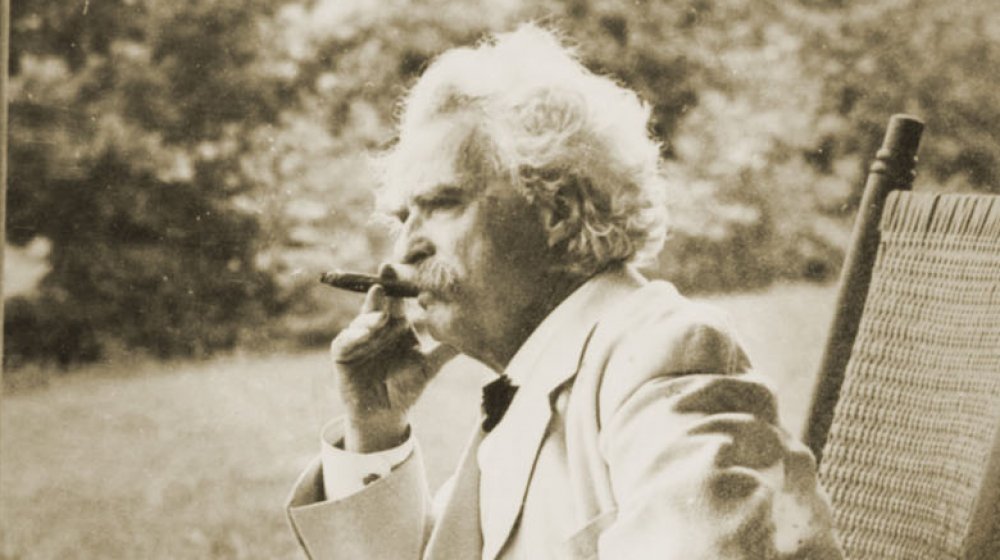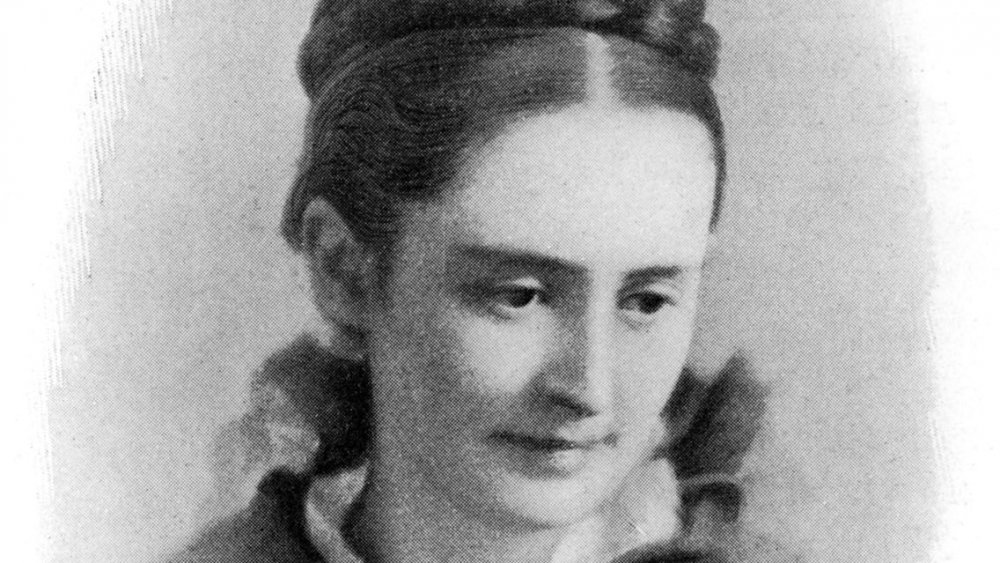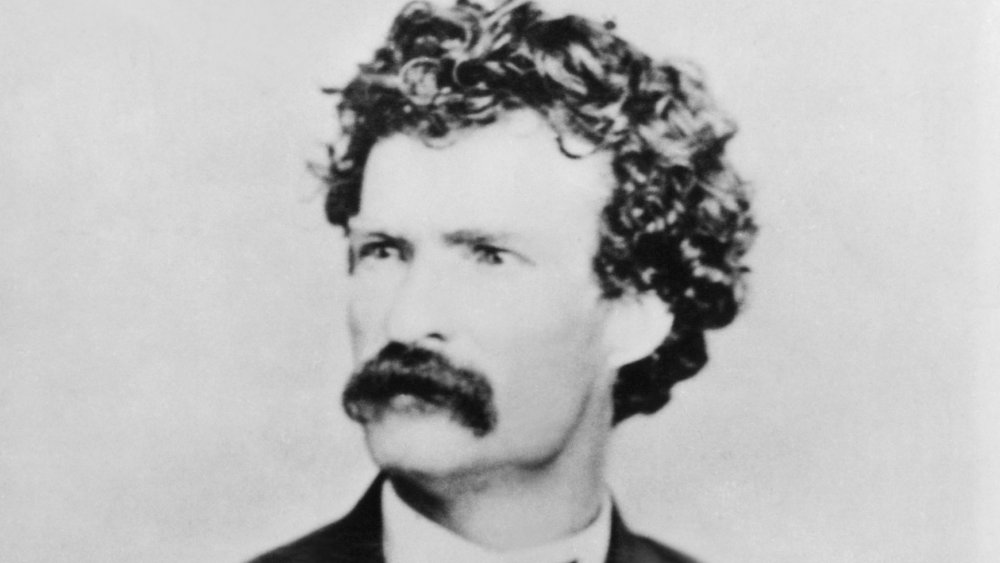What You Didn't Know About Mark Twain
Mark Twain is unique among American literary giants, insofar as he's famous, he's studied, and people continue to read and quote him, all these years later. Hal Holbrook earned a very tidy living for decades personifying Twain in the granddaddy of one-man shows, Mark Twain Tonight! Some consider Twain's 1885 novel Adventures of Huckleberry Finn one of the — if not the — greatest pieces of American fiction, ever. Said Ernest Hemingway in 1935 (as quoted by The Los Angeles Times): "All modern American literature comes from one book by Mark Twain called 'Huckleberry Finn. It's the best book we've had. All American writing comes from that. There was nothing before. There has been nothing as good since." That work alone has provided the basis for movies, an ill-advised TV show that combined animation and live action in the late 1960s, and a musical by Roger Miller, Big River, which earned numerous Tony awards during its more than two years on Broadway in the mid-1980s. In his 1887 book Following the Equator we find these words: "'Classic.' A book which people praise and don't read."
But people do read Twain, still, and often enough to get him banned, still, on a regular basis.
He most wanted to be a steamboat pilot on the Mississippi River
As Jocelyn Chadwick, former professor at the Harvard Graduate School of Education, told American Experience, "I think that it's landed on the list of banned books because it goes where Americans really don't want to go. We talk about race and racism and acceptance and inclusivity and equity. We talk at that, but we don't really listen and engage in a real substantive conversation. I think that Huck Finn ... goes to the heart of what still bothers us to this day."
And he didn't start out wanting to be a writer.
He was born Samuel Langhorne Clemens in 1835 in a wee small town in Missouri. When he was young his family moved to Hannibal, on the banks of the Mississippi, which became the fictionalized setting for both Huckleberry Finn and its predecessor, The Adventures of Tom Sawyer. He was quite sickly as a child, but also, if we want to be charitable, a handful. Once grown to be an adult, Encyclopedia Britannica says that he asked his mother, "I suppose that during that whole time you were uneasy about me?" "Yes, the whole time," she answered. "Afraid I wouldn't live?" "No," she said, "afraid you would."
He deeply loved his wife, Olivia
The great river itself was the cardiovascular system of frontier America, providing transportation of goods and people in great paddlewheel steamboats. No one was as esteemed as a steamboat captain, and Clemens wanted nothing more than to attain that station in life. He apprenticed and learned the river and was licensed at last, just in time for the Civil War to end that way of life. He served briefly in a Confederate militia, says History, before heading West to earn his fortune, one way or another.
Prospecting in Nevada didn't work out, and he found himself writing for newspapers, both as a reporter and as a humorist. He turned to travel writing specifically, creating a series of 25 pieces about a trip to the Sandwich Islands — now the state of Hawaii — in 1866. He fell in love with the area, and as late as 1881 wrote in a letter, "What I have always longed for was the privilege of living forever away up on one of those mountains in the Sandwich Islands overlooking the sea." In 1884 he was working on a novel about the islands, though it was never completed.
Mark Twain has no direct descendants
"Mark Twain" was a pen name derived from his riverboat days: it was a measurement of the depth of the water, two fathoms, or 12 feet — a safe depth for navigation, as ThoughtCo explains. He used it as a journalist (among others, especially when he was writing humor pieces) and later for his books.
He's most famous for his stories of the American frontier — Tom Sawyer, Huckleberry Finn, Roughing It — but travel journalism was a huge part of his output as well, including The Innocents Abroad, his first book, about a pleasure trip through Europe and the Holy Land with a group of awkwardly naive American tourists. He also wrote historical fiction (The Prince and the Pauper, Personal Recollections of Joan of Arc), dabbled in mysteries (The Tragedy of Puddn'head Wilson), and was a friend of Rudyard Kipling (The Jungle Book). He saved his friend, Civil War hero and former President Ulysses S. Grant, from dying in poverty by publishing Grant's memoirs, says Biography.
Twain adored his wife, Olivia — he called her "the most perfect gem of womankind" — and deeply grieved her death. They had four children, but only one, Clara, survived to marry and have a child of her own. Mark Twain died in 1910; his granddaughter died in 1966, childless. Mark Twain has no direct descendents.



